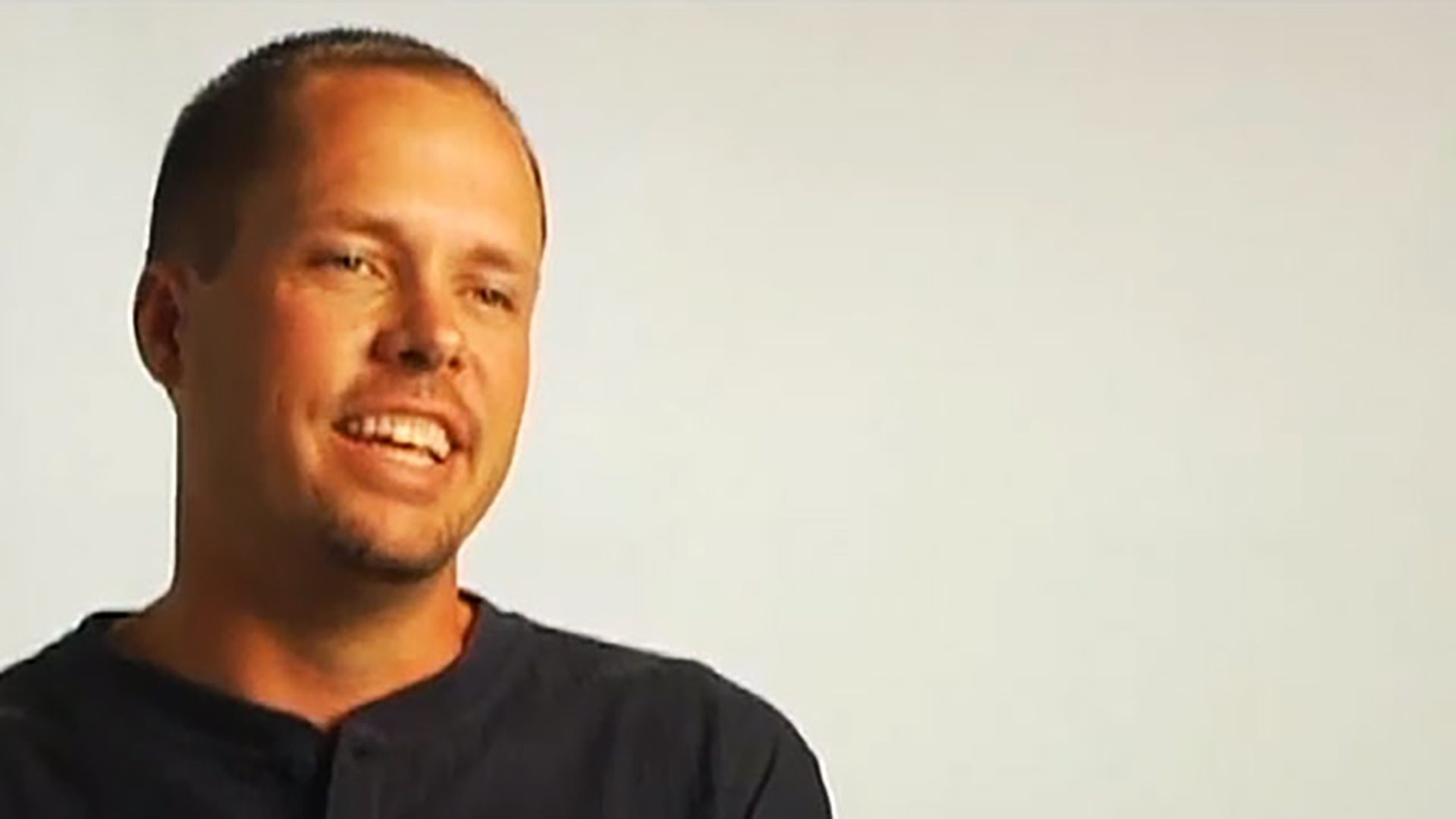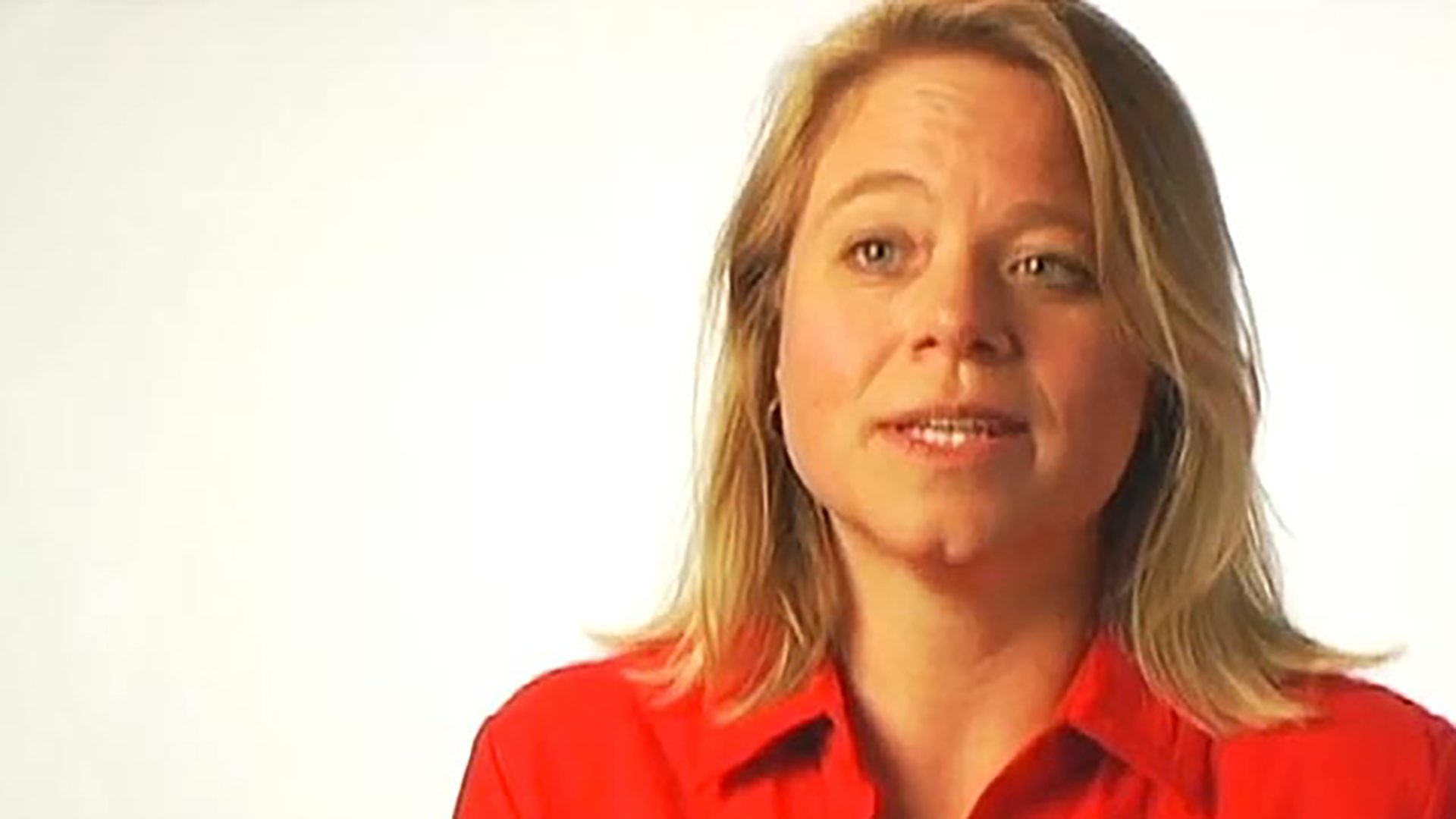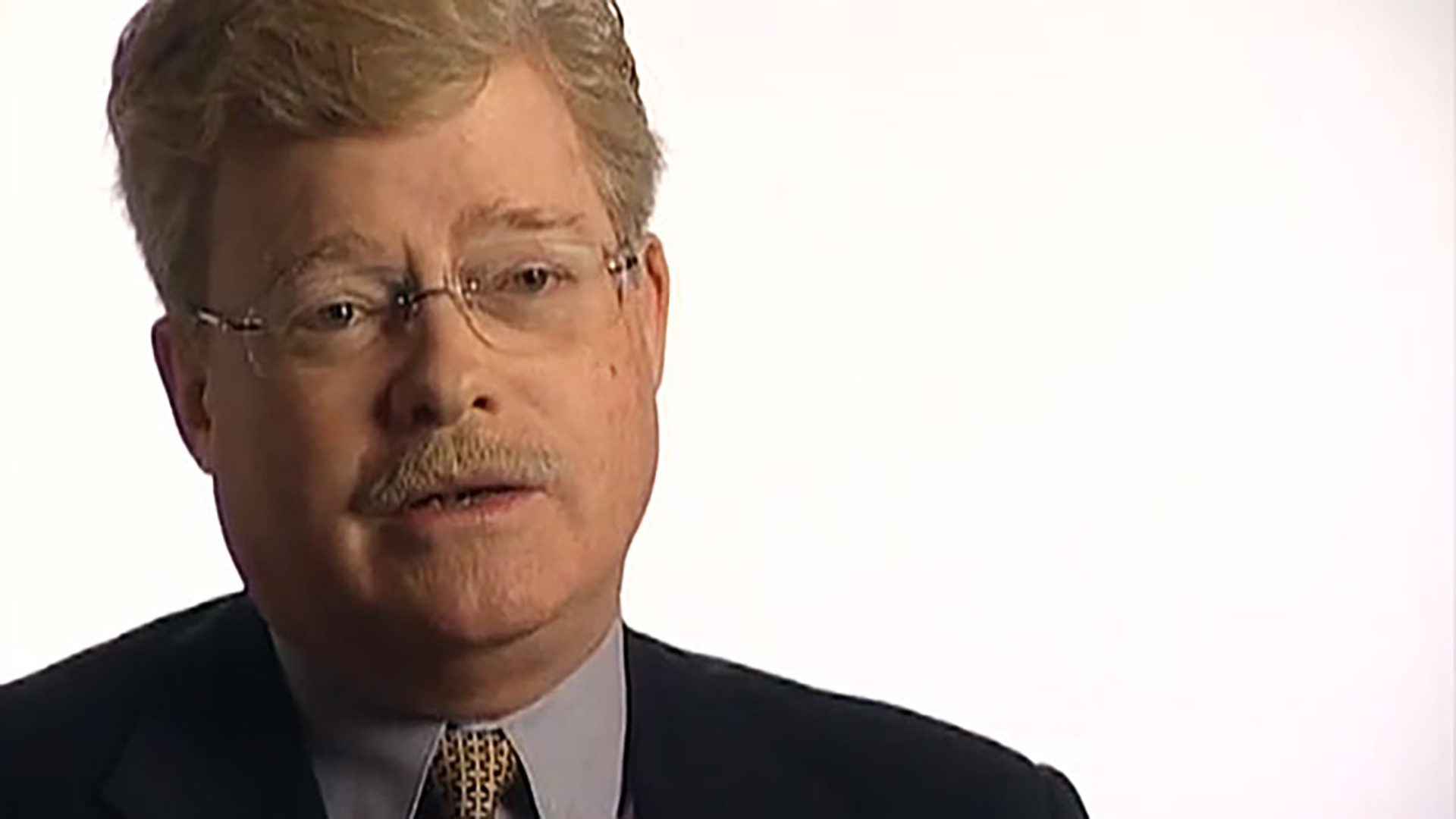Survivor Interview – Eric N.
Eric is a two-time cancer survivor. He talks about changes to his lungs after surgery, meeting other survivors, and living with uncertainty.

I became a cancer survivor on January 1999. I was diagnosed with carcinoid in my single kidney.
At that time, we did an auto-transplant. They removed my one kidney, removed the tumor, and put my kidney back in my pelvic region. From there, we proceeded to have quite a few problems with dialysis and the kidney shutting down. The kidney wouldn’t seal up right away. I spent 31 days in the hospital with that surgery.
I took three months to recover, and then we were on a high watch. There was no chemotherapy, no radiation. We did a lot of CAT scans thereafter watching for any growth or any spread. They didn’t see anything right away. We went about two years with negative results on tests. My wife and I weren’t able to have any kids, so I went to see a urologist on that subject. He had asked me about my past, and I explained to him about the original surgery and what was going on there. He wanted to have me checked for varicoceles in my testicles. We did an ultrasound, and lo and behold, we had seminoma in the right testicle. That was a shock to everybody. We went ahead and had a surgery to remove that. That was an outpatient surgery.
We went about another year and a half, and we started doing nuclear scans checking for more of the carcinoid. Two more tumors showed up. We decided that we were going to go in and have those removed. They ended up being centrally located on the lymph nodes in the digestive system. They did a surgery at Stanford. At the same time, they found four more nodules on the liver, and we did resections of the liver. There ended up being a total of seven nodules that they removed at that time. Since then, I’ve been cancer free as far as we can tell. That surgery was two years ago.
I had a pulmonary embolism after my first surgery. I had been home eight days after the original surgery. It was the 11th day thereafter, and I was having a hard time breathing. I was just sitting in the chair at home, and I couldn’t catch my breath. I went to my local doctor. They ended up sending me to the local hospital, and we did another nuclear scan there. That showed a blood clot in my lung. They did blood thinners, and that put me back in the hospital for an extended stay, another 20-22 days. I have a Factor 5 Deficiency. It’s a genetic trait that I’ve acquired from Mom and Dad. We’ve since found that one of my sisters also had this Factor 5 Deficiency. It could be anytime that you’d be in a resting situation, where you wouldn’t be moving. That 11 days out of the hospital, I was sedentary at home. The blood clot would start in your leg, and then it would move up, and can go to your lungs, your brain. It’s a fairly dangerous situation. I’m always on the watch for that even now, making sure that I’m not sedentary. They suggested even on long plane flights that I should get up, walk around and make sure that I’m not sedentary for any extended periods of time.
My fecal incontinence is a result of the carcinoid. It’s pretty inconvenient. I can have diarrhea as many as five, six times a day. With working schedules, things are very inconvenient. Fortunately, I have an employer that’s very understanding. I take a shot every two weeks. It’s Sandostatin that slows my digestive tract down. That has really helped a lot. I still have diarrhea on a regular basis, but it’s nothing that I can’t control with over-the-counter drugs such as Imodium. I’m able to continue life pretty normal now. But before we started getting this shot, it was rough. I was suffering from dehydration. I’m a very active, athletic person, so my diet is more focused towards the athleticism than it is to control that. I do find that when I have a higher fruit and vegetable intake, that fiber works its magic.
I’m very active. I’m an active mountain biker and road biker. I do adventure races, which are kayaking, mountain biking and trail running. I train diligently for these. If I stay strong, that’s going to help me in the future to beat the cancer. I probably exercise to a fault. I’m pretty fanatic about my exercise. I probably ride my mountain bike and road bike upwards of 125 miles a week, and I run probably close to 45-50 miles a week. It’s not uncommon for me to spend two or three hours, two times a week in a kayak. I spend a lot of time working out.
The hot flashes are part of the carcinoid. The typical symptoms are diarrhea, flushing of the face and hot flashes. The flushing has been an uncommon part of it for me. It’s been real common for other carcinoid patients, but I have had a little bit of flushing. It tends to happen a lot during nervous moments and also when I don’t get my shot on a regular basis. If I miss an appointment, the flushing and hot flashes can get more common. The other problem I have with that is I get really bad night sweats, to a point where I have to get out of bed sometimes. The hot flashes can be inconvenient. It is carcinoid syndrome, and it’s an ongoing process. These tumors are probably still in there someplace. They’re at a microscopic level, and they put off a hormone that causes these symptoms. The Sandostatin is supposed to subside these symptoms or help with them, and it usually does.
My wife and I have had an extraordinary relationship through this. She’s always been there for me. She’s been strong for me. She is always there. She’s my best friend. I can talk to her about anything. I never hold anything back from her. Some of the times that I’ve gotten bad news, I’ll go to a scan, and I’ll call her right away and tell her. I’ve been sitting in the truck, on the cell phone with her, just crying and tore up with the bad news that I just got, and she’s rock solid for me. It’s been phenomenal. Even when I was telling her that we weren’t going to be able to have kids, she was very understanding. She’s been very strong and by far and away my strongest supporter.
I had a situation with my dad and family members during surgery and right after surgery. My dad came to me one time right after surgery. He’s a very religious person. And Dad, I love you. But he came to me, and I was in agony, blue and just out of OR. He said to me that he had made peace with God and that he was able to accept it if I didn’t make it through this. To me, at that time, not making it wasn’t a possibility. At the time, I was really upset with him. I thought, “You’ve got to be positive. You’ve got to think that we’re making it. There is no other alternative.” Looking back on it, though, I think now that that was his way of dealing with it. All family members deal with these things in their own particular way. As a cancer survivor, sometimes we need to accept the way that they deal with these things and just take it day by day.
With meeting other survivors, early on, it was difficult. I had had contact with a good friend from work, and his wife had non-Hodgkin’s lymphoma. She was my support group for the first couple of years. After the second surgery or third surgery with the carcinoid, we sought out a support group, a carcinoid support group. We’ve met many carcinoid survivors. I attend their meetings probably three, four times a year, and they’ve been a wealth of information. Meeting survivors is a necessary part of cancer survivorship. Currently, I’m dealing with a coworker that has a 13-year-old child and he’s just been diagnosed with a cancer. I’m trying to help them understand the process and use my experiences to help them along. While they’re still fresh with it, I’m hoping that they’re going to move in the right direction here real soon.
I think all cancer survivors live with fear of recurrence. For me, I’ve been told that I have close to a 90% chance of it coming back. I accept that. I want to be aggressive with it, but it is definitely a scary thought to think that we could have to go through this all again in the future. I worry about leaving my wife as a single individual, middle-aged, and that would be difficult for her. We’ve been married for almost 14 years. We were high school sweethearts. My thoughts on it are to stay aggressive with the CAT scans and the other scans. I don’t ever miss appointments. When you hear that cancer word, your first thought always is, “It’s a death sentence.” It’s not that way, but a lot of people feel that way.
With Livestrong, ever since I’ve heard that, I practice that. Live strong, be strong. I try to be strong for my family, my wife. I try to be strong for my racing teammates. Strong for other survivors. Try to be strong for everybody, myself. I live strong by working out. Sure, I don’t work out near as much as Lance does, but I thoroughly enjoy my exercising every day, the mountain biking, road biking, running. That’s what I’m about. That’s what I do, and I focus on that. In the hard times, when I get bad news, nine times out of ten, I’ll go out for a run, for a ride and try to live strong through that.
My name is Eric Nichols, and I’m a five-year cancer survivor.

